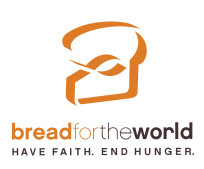 While most of our service ministries respond to the world as it is, what about changing it? In the Bible we find that this is exactly what the prophets attempted to do. Rather than simply encourage the faithful to live out their commitment to God’s ways as best they could in an unjust society, the prophets demand, over and over, that changes be made. God’s law has requirements of justice and compassion, and the prophets simply will not let them be forgotten.
While most of our service ministries respond to the world as it is, what about changing it? In the Bible we find that this is exactly what the prophets attempted to do. Rather than simply encourage the faithful to live out their commitment to God’s ways as best they could in an unjust society, the prophets demand, over and over, that changes be made. God’s law has requirements of justice and compassion, and the prophets simply will not let them be forgotten.
Moving to the New Testament we find that while the early church was not in a position to make demands on the government, that doesn’t mean it didn’t have an opinion. Just read Revelation for a vivid condemnation of the Roman Empire’s status quo! The apostles are described as the people who turned the world upside down–that doesn’t describe people just trying to get along!
Trinity’s efforts in advocacy follow a two-fold approach.
First, we seek to educate ourselves. Understanding the causes of poverty and identifying workable solutions requires going beyond sound bites, no matter from which side of the political spectrum those sound bites originate. Much of what we think we know about social issues is based on prejudice and assumptions, not real evidence.
Once we understand the issues, the next step is finding ways to make a difference. Often this means being involved on the political scene, either as individuals or as a congregation.
Our best resource for both of these tasks is Bread for the World. Bread is a Christian-based advocacy group which seeks to reduce poverty in the US and worldwide by promoting policies that look out for the well-being of the vulnerable in our society. Trinity is a member congregation, supporting this work. Once a year, Trinity makes an Offering of Letters, supporting a particular issue identified by Bread for the World. We regularly engage these issues through discussion, primarily at the Rector’s Forum. Look for these opportunities, and in the meantime take a look at these resources and understandings.
